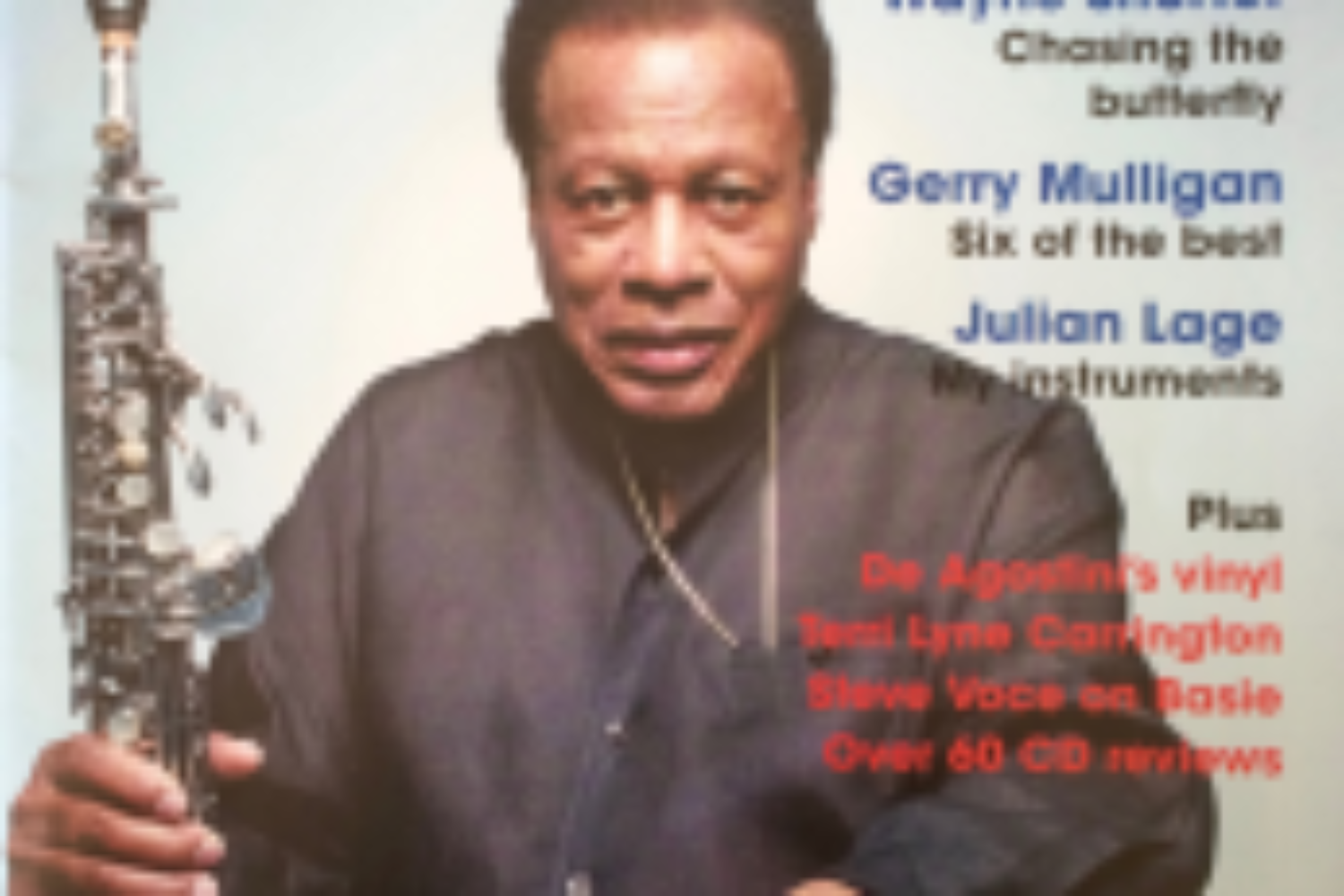Voici une interview parue dans le Jazz Journal (Volume 69, n°3, March 2016).
« Today people talk about European jazz but really in art there are no frontiers. Cinema, painting and sculpture play a very important part in my life and for me to disappear into the sound is the most important thing«
Situated on the ground floor of the elegant Hotel d’Aubusson, the Café Laurent jazz club lies at the heart of Paris’s 6th Arrondissement, at the junction of Rue Dauphine and Rue Christine.
Four nights a week there, the French pianist Christian Brenner leads a trio and invites a wide range of first-class guest vocalists and instrumentalists to play at what is undoubtedly the best regular jazz gig in the city of light. It’s over a decade since I first went to Café Laurent and I’ve yet to hear music that didn’t send me out into the Paris night with a smile on my face.
There’s a strong sense of jazz history in the area. In 1947 the famous Club Tabou was started at the Aubusson and in the 1 990s, at nearby Rue Jacob, La Villa hosted worldclass jazz for some memorable years, featuring the likes of Harold Land, Chico Freeman, Shirley Hom, Fred Hersch and Ahmad Jamal. When La Villa closed, its exceptional Steinway came to the Aubusson, thanks to the efforts of maître d’hôtel Flavien, and early in the new millenium, Brenner and Flavien got Café Laurent started.
The place has never looked back, offering a superb natural acoustic in the most comfortable and intimate of surroundings.
Classically trained – he didn’t start playing jazz until he was 32 – and blessed with a wonderful touch and sense of dynamics, Brenner works with musicians who share his comprehensive knowledge and love of the jazz repertoire, and who, like him, bring fresh and vital perspective to it. Top-notch improvisers such as Italian drummer Pier Paolo Pozzi and French bassist Gilles Naturel (whose recent Contrapuntic Jazz Band album got a four-star review from Mark Gilbert in JJ 0515) interact superbly with Brenner – who is also a fine composer.
A subtle feeling for melody, time and atmosphere distinguishes the CDs he has recorded to date. They are Influences Mineures, Le Son De L’Absence and the soon-to-be released Les Belles Heures – the last of which showcases Brenner’s many affinities with Brazilian music. There have been times when Brenner has had to vacate the Café Laurent chair to tour, including Brazil and China. Recently, I caught him and his trio in Paris, first with saxophonist Guillaume Naturel (brother of Gilles, and who appears on Contrapuntic Jazz Band) and then with the French-domiciled American singer Monique Thomas.
I asked Christian, a thoughtful and intelligent man, about his background and musical philosophy. »I was bom in 1958 at Choisy Le Roi, near Paris. I came to jazz late, and leaming a new art at that stage in life, with a family to consider, was not easy. I went through a jazz programme directed by Alan Silva (ndlr :IACP, Paris) and learned so much from playing live. There have been many influences and affinities on the way! Keith Jarrett and his trio, for instance: I love their engagement, their sound and interplay – the creative imagination they have. Bill Evans, of course, and Herbie Hancock; Kenny Barron, Enrico Pieranunzi and Fred Hersch – these have been special for me.
But I have appreciated and learned from many of the major names – from Miles and Coltrane to Wes Montgomery, Brad Mehldau and Pat Metheny, for instance. And Art Tatum: his playing is so modern, still! « Today, jazz in Paris is on a very high level, with an amazing new generation exploring many possibilities … Open your ears, you can fly! Personally, I’m a touch nostalgic and love old forms. But if I feel a little distant from contemporary jazz with big amplification, machines and DJs, still I try to make the old new, if I can put it like that. The natural, unamplified sound at Café Laurent, and the possibility to improvise in such an intimate context: this is very important for me.
And I’ve been lucky enough to play with many special muscians, from all over, such as – to give a few names only – Stéphane Mercier (Belgium), Fabien Mary (FranceJ, Michael Brockman (USA), Martin Jacobsen (Denmark), Maÿas Szandai (Hungary), Mauro Borghezan (Brazil) and, of course, my trio with – most often – Bruno Schorp on bass and Pier Paolo. « Today people talk about European jazz but really in art there are no frontiers. Cinema, painting and sculpture play a very important part in my life and I could say that, for me, to disappear into the sound is the most important thing: thinking of music like a painter or sculptor, blending things, trying to translate sensations and emotions with truth or integrity – always trying for something more, something … further. »
By Michael Tucker
